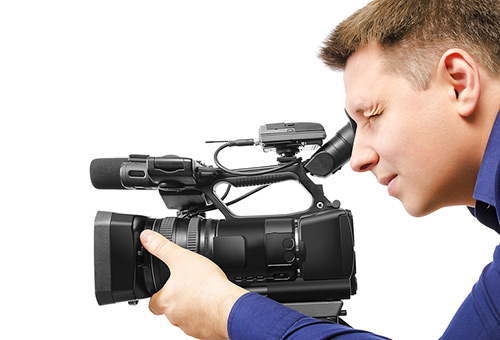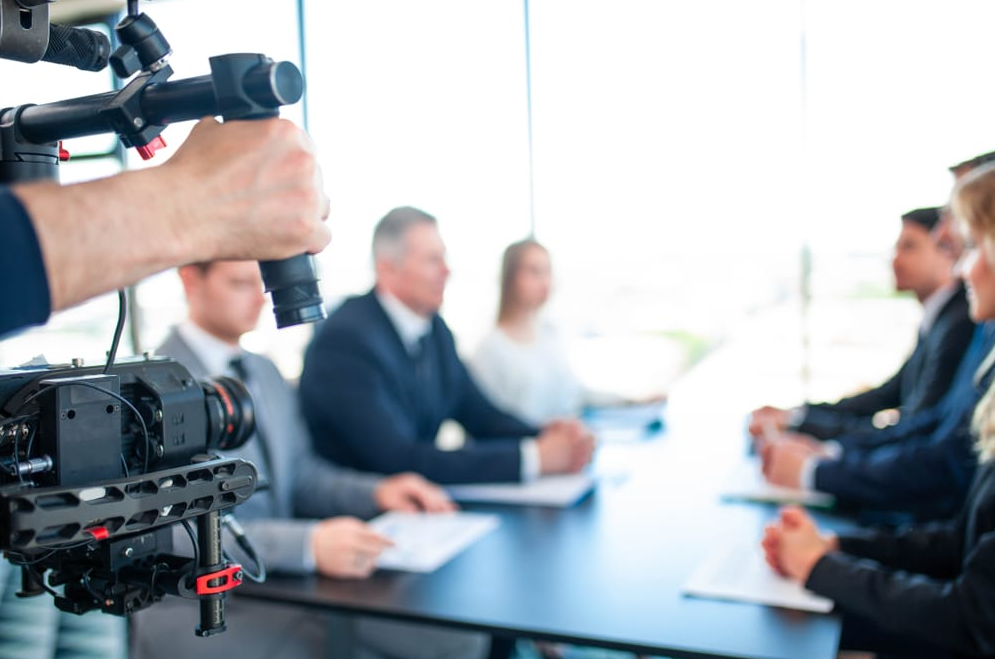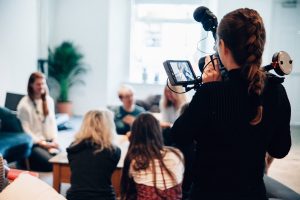Efficient Legal Videography Services.
The Duty of Lawful Videography in Depositions and Tests
Legal videography has actually emerged as a crucial tool in both depositions and tests, supplying a multifaceted technique to documenting witness testimonies. As lawful specialists progressively identify its value, it motivates a deeper assessment of how these aesthetic documents can influence juror understandings and test results.

Value of Lawful Videography
Legal videography plays an essential duty in the documentation and discussion of depositions and tests. This specialized field integrates technological abilities with legal understanding to produce a dependable document of process that can significantly influence situation end results. The aesthetic aspect of legal videography improves the understanding of witness testament, permitting jurors and judges to observe not only the talked words but also the temperament, emotions, and body language of the witnesses.
Furthermore, legal videography offers an objective account of events, reducing the potential for false impression that can accompany created records alone. This visual documentation works as an essential tool during test discussions, assisting in a more clear and more persuasive story for both complainants and offenders. The capacity to replay video clip sections during court process allows legal groups to highlight key factors, strengthening their arguments properly.
The value of legal videography expands past the court; it also plays a crucial function in maintaining proof for future recommendation, whether for appeals or more lawful action. Thus, its combination right into the lawful procedure is crucial for guaranteeing a fair and precise depiction of the truths, inevitably adding to the search of justice.

Process of Legal Videography
While catching the subtleties of depositions and tests, the process of legal videography includes numerous critical steps that make sure high-grade, accurate recordings. An expert legal videographer prepares by evaluating the situation materials and comprehending the certain demands of the deposition or test. This prep work includes familiarizing themselves with the participants and the context, which helps in catching important information.
On the day of the recording, the videographer establishes the needed devices, which usually consists of high-definition cams, microphones, and appropriate lighting. Guaranteeing optimal angles and audio top quality is critical, as it straight influences the efficiency of the recording. The videographer interacts with attorneys and individuals to develop procedures, making sure that everybody comprehends the recording process.
Throughout the deposition or test, the videographer diligently tapes the procedures, paying attention to both verbal and non-verbal cues. This includes catching the behavior and responses of witnesses and attorneys. After the session wraps up, the videographer may edit the video for quality and compliance with legal standards, producing an end product that precisely reflects the process for future reference and usage in lawful contexts.
Benefits in Depositions
The unification of videography in depositions provides numerous benefits that enhance the total process of collecting evidence. One key benefit is the capacity to catch witness testimonies with aesthetic and auditory integrity, providing an extra accurate depiction of the witness's attitude, tone, and body language. This multidimensional approach enables attorneys and juries to examine reliability better than conventional written records alone.
Additionally, videographed depositions function as an effective tool for maintaining testimony. Must a witness become not available for test, their tape-recorded deposition can be played in court, making sure that their proof stays available and pertinent. This aspect substantially lowers the risk of losing critical information that might affect instance outcomes.

Lastly, videography boosts the total professionalism and reliability of the deposition process, instilling confidence in customers pertaining to the thoroughness of their lawful depiction (legal videography). By leveraging innovation, legal professionals can considerably improve the effectiveness of depositions
Impact on Tests
In lots of trials, the combination of videography can considerably influence the discussion of proof and the jury's perception. Legal videography records witness testaments and important evidence in a dynamic layout, permitting jurors to go to this site engage with the material on numerous degrees. This visual component boosts the storytelling aspect of a test, giving context and psychological vibration that conventional text-based evidence may lack.
Furthermore, video recordings can act as effective devices for impeachment during cross-examination. When disparities occur between a witness's previous statements and their court room statement, video proof offers an unbiased recommendation that can sway jurors' point of views. This immediacy and clarity can strengthen the integrity of a party's story while at the same time threatening opposing disagreements.

Future Trends in Legal Videography
As we look toward the future of legal videography, a number of arising patterns assure to improve its duty within the courtroom. One significant trend is the combination of man-made knowledge (AI) in video clip evaluation and editing. AI can streamline the procedure of recognizing essential moments in taped depositions, allowing attorneys to swiftly access relevant content, therefore boosting effectiveness in situation preparation.
In addition, the surge of online reality (VIRTUAL REALITY) and boosted truth (AR) technologies is anticipated to change exactly how jurors experience evidence. legal videography. By submersing jurors in a simulated environment, these modern technologies can supply a much more profound understanding of intricate situations, resulting in even more educated deliberations
Moreover, the raising demand for remote depositions, accelerated by the COVID-19 pandemic, will likely proceed. Legal videographers will certainly need to adjust to new software and systems to guarantee top quality recordings in digital setups.
Lastly, the expanding emphasis on information safety and security will certainly require more stringent procedures for storing and sharing video proof. As the legal landscape page advances, legal videographers have to stay abreast of these trends to preserve their relevance and efficiency in the judicial process.
Final Thought
In recap, legal videography offers a crucial feature in the judicial procedure, improving the integrity of depositions and tests. As modern technology continues to develop, lawful videography is positioned to further change its function within the legal landscape.